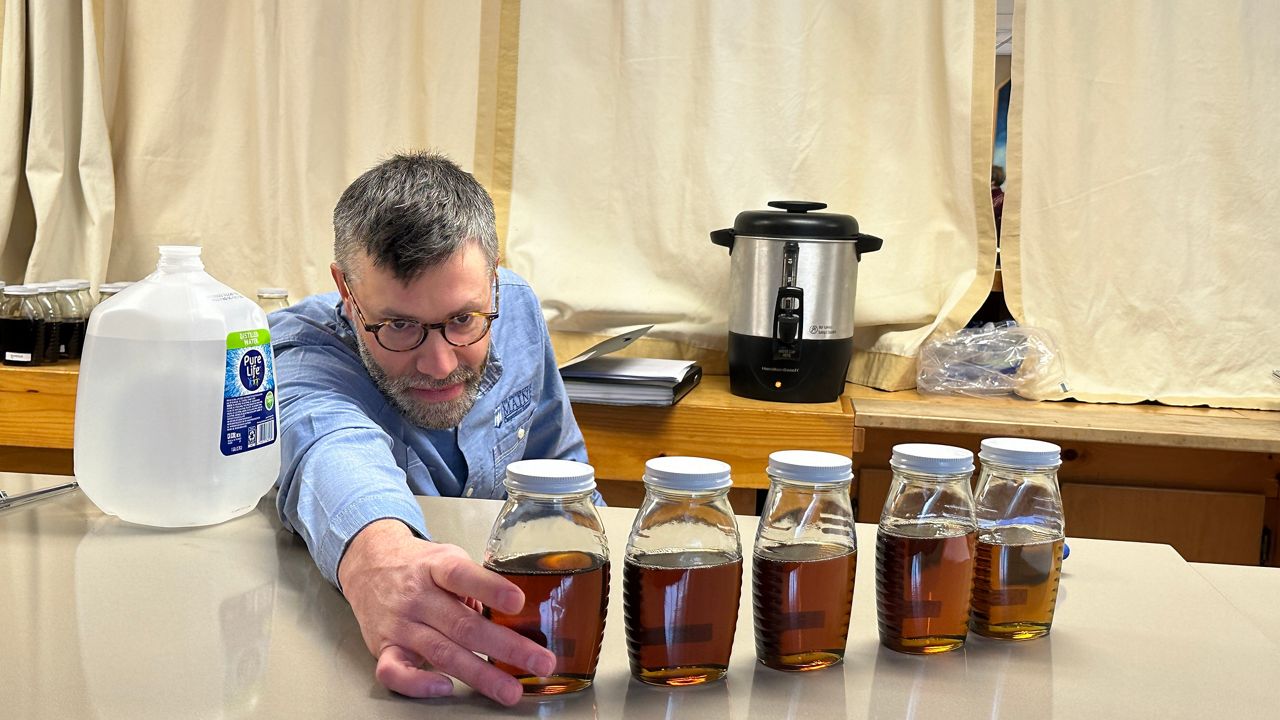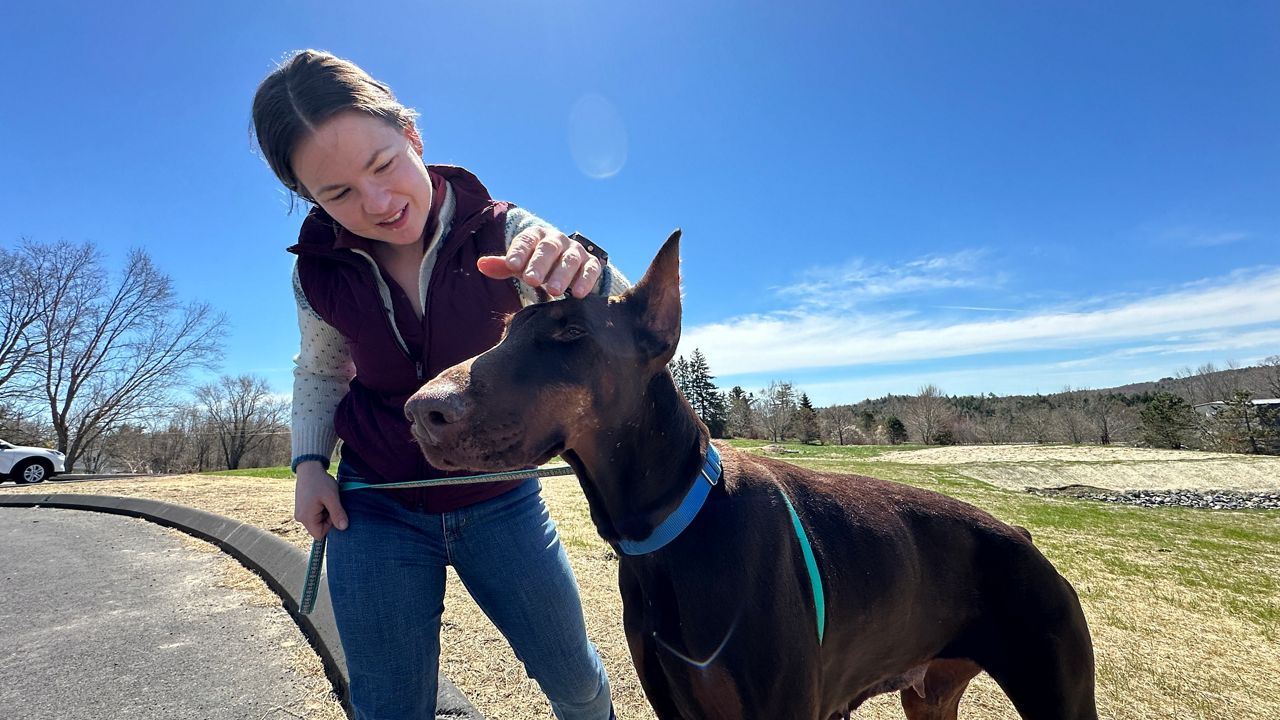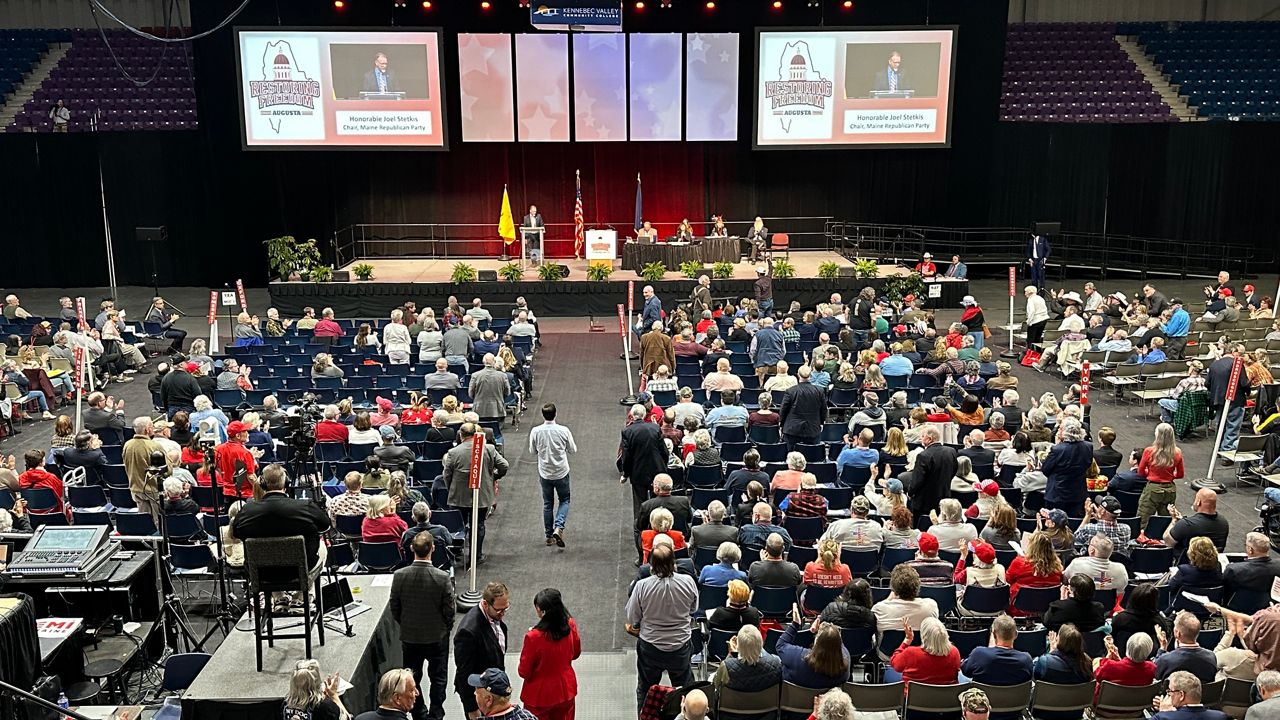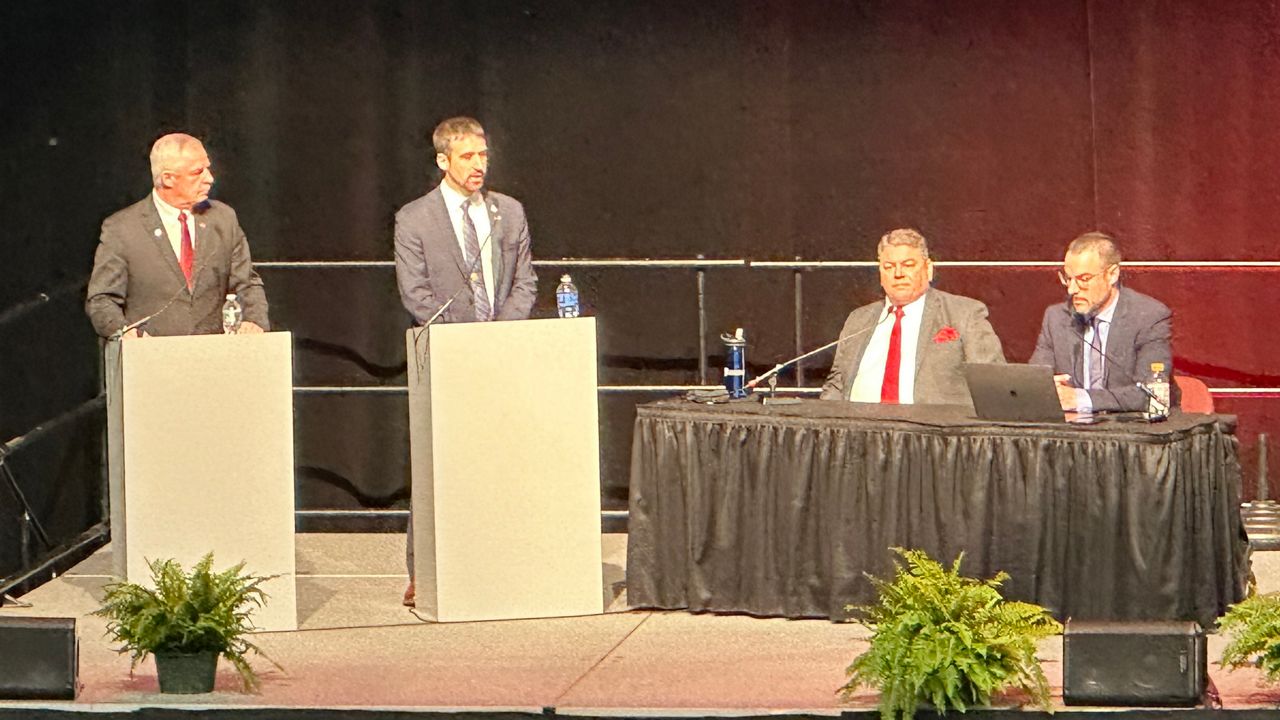Jason Lilley and his crew of maple syrup experts lined up tiny paper cups on a kitchen table Friday and dispensed the perfect portion amber goodness.
Every entrant in the Maine Maple Producers Association annual contest would be judged on the grade, color, density and flavor of their syrup.
“This is a high-quality food product so we’re testing to see which ones really stand out and shine as far as the best flavor,” said Jason Lilley, the sustainable agriculture and maple industry educator at the University of Maine Cooperative Extension.
So how does one develop the right palate to become a judge?
“You spend 20 years tasting syrup,” said Kathy Hopkins, who is a retired educator from the cooperative extension. “You develop a sense.”
The winners will get ribbons to hang in their sugar shacks or better yet promote their products on social media, where they will own the bragging rights in categories of golden delicate, amber rich, dark robust and very dark strong.
The contest is part of the association’s annual meeting held this year in Gray, where purveyors of the $54 million a year industry share tips and learn from experts from other states. Maine is behind only Vermont and New York when it comes to maple syrup production in the U.S.
The industry is coming off a tough year when a cold snap was followed by very warm spring weather, ending the season for many earlier than normal, Lilley said. For many yields were down by 50%.
“The quality has been really good,” he said. “The quantity was awful.”
In the golden delicate category, only one producer entered a sample. After holding the sample up to the fluorescent light to judge the color, the judges first smelled the syrup.
Lilley said he was looking for a floral or almost honey-like taste.
On the score sheet — which did not name the producer because it’s a blind taste test — the judges commented that it had “great flavor” but was close to being too dark.
Then it was on to the next category, with a large jug of water nearby for palate cleansing as needed.
As he looks to the future of the industry, Lilley is working with a professor from Cornell University to track how weather impacts the maple syrup industry.
“We’re concerned and starting projects to look at how these extended droughts or extended soil saturation, how that may be stressing the trees, and seeing if there’s any connection between sap quality and those stressors,” he said.
The impact might not be immediate, but something that comes out several years down the line.
As for this year, large producers in southern Maine have already started tapping their trees, while smaller producers in central and northern Maine will get going in late February or early March.
“Maine Maple Sunday is usually the end of the season for folks down here and the beginning of the season for folks up north,” he said.
This year, Maine Maple Sunday Weekend is March 23 and 24.
“The biggest influences on maple flavor are how they handle the sap and sanitation practices, so there’s a lot that is within the control of the producer,” he said.









)